Abstract
The pit-dwelling ant lion Myrmeleon carolinus, although topically sensitive to formic acid, is able to prey on formic acid-spraying ants (Camponotus floridanus). It kills the ants without inducing them to spray, and it sucks out the ant's body contents without puncturing the acid sac. Ordinarily, when Camponotus is attacked it retaliates by simultaneously biting and spraying, but it usually refrains from spraying until it has secured a grip with the mandibles. When Myrmeleon pulls Camponotus into the sand at the bottom of the pit, the ant is seemingly unable to grasp the ant lion and it is killed without being induced to spray. When feeding on the ant, the ant lion sucks up the contents of the nutrient-laden crop. How the ant lion differentiates between crop and acid sac, managing to spare the latter while rupturing the former, remains unknown.
Full text
PDF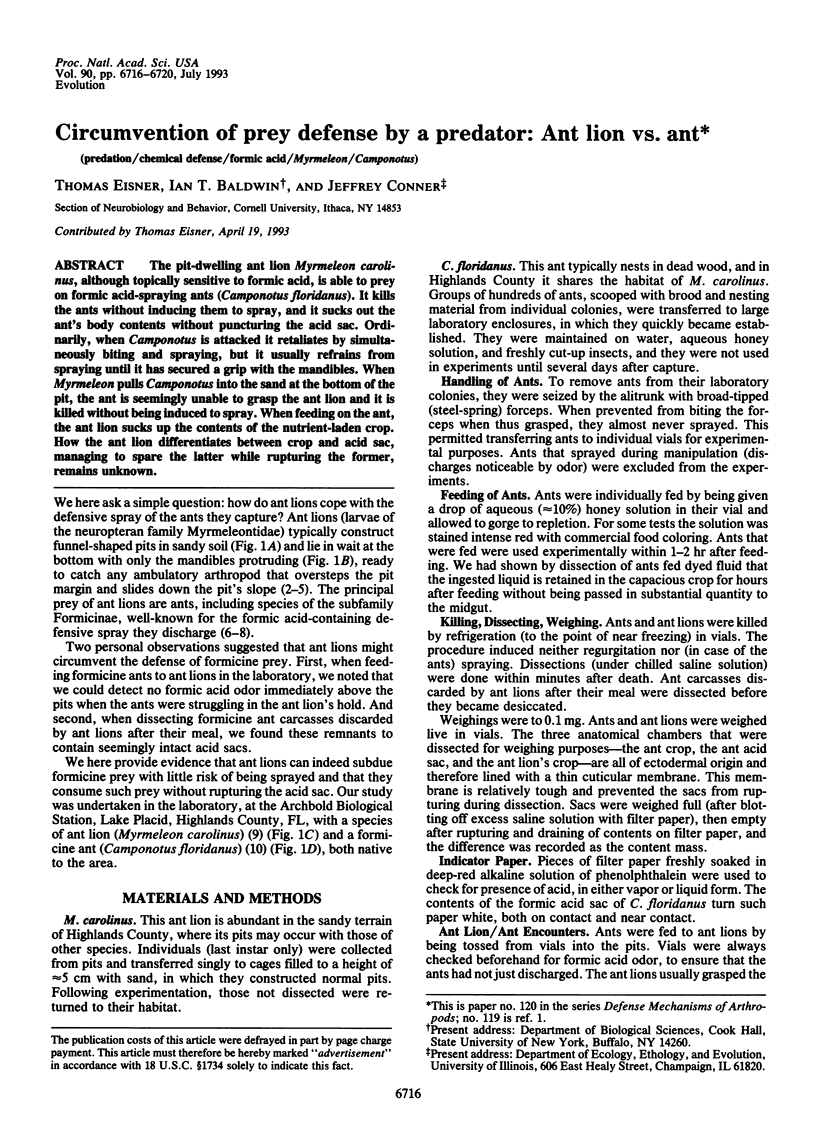
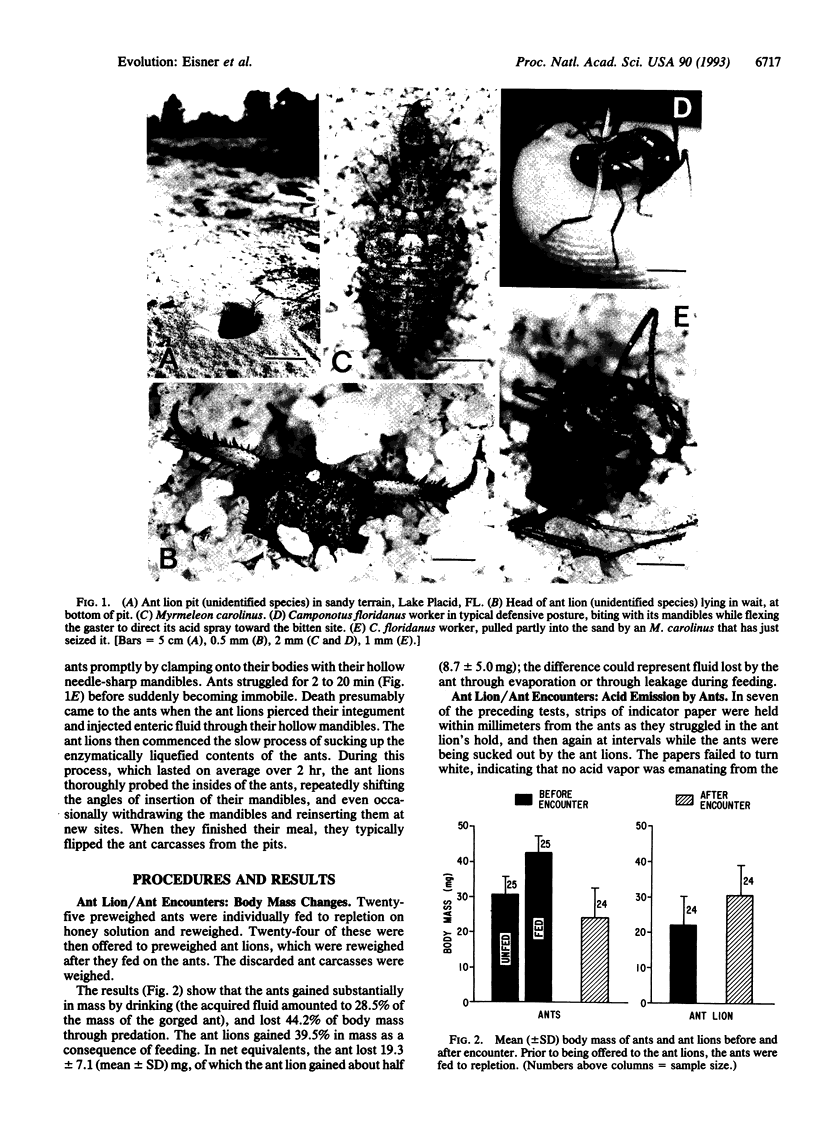
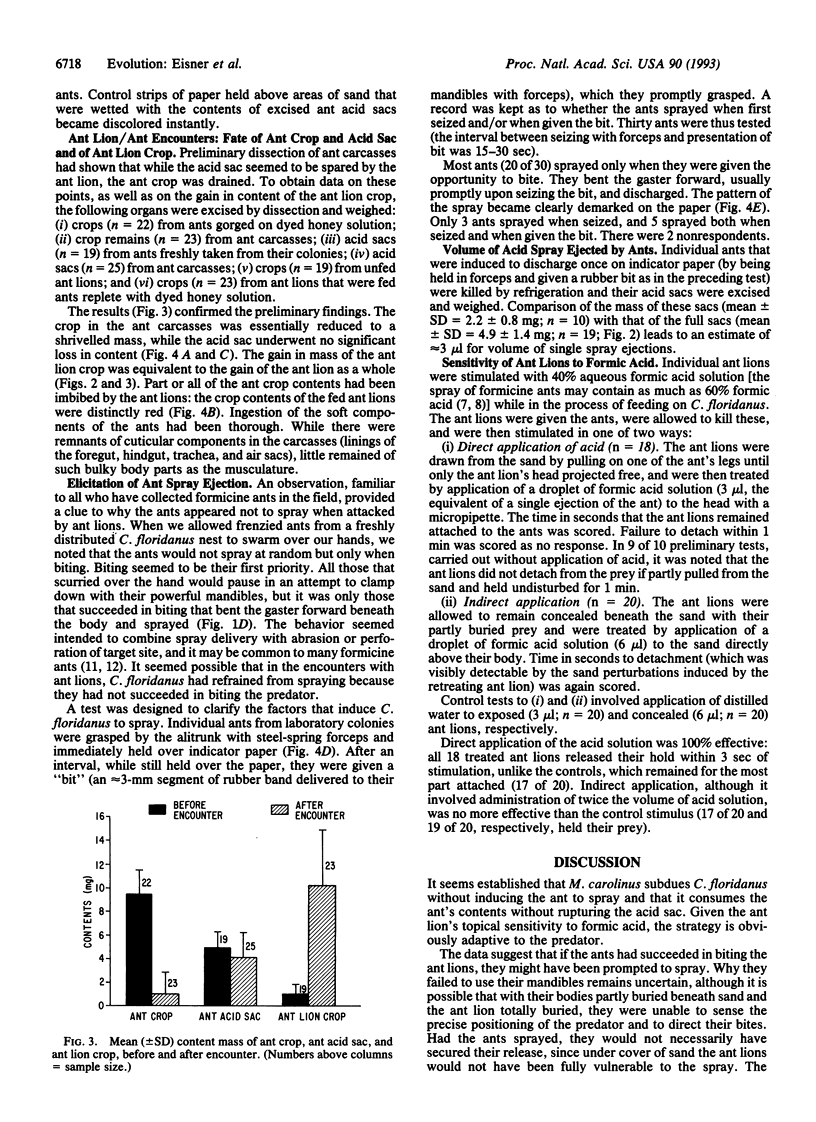
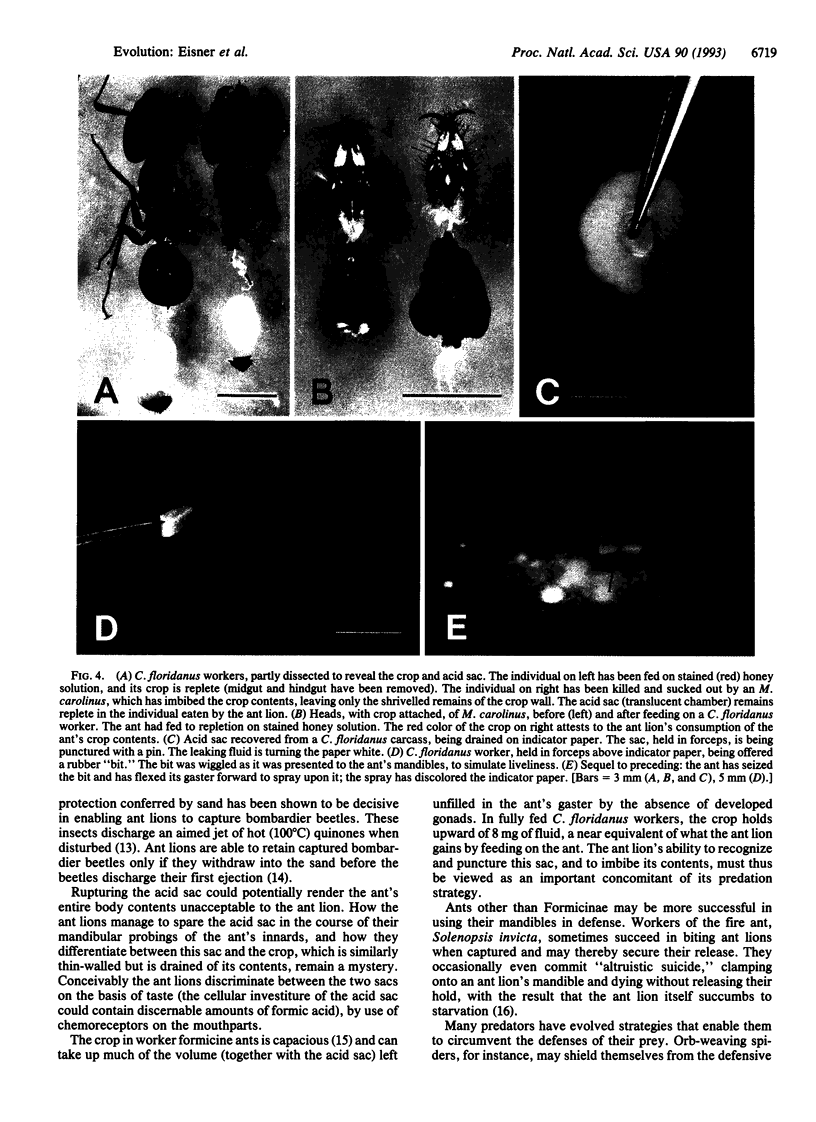
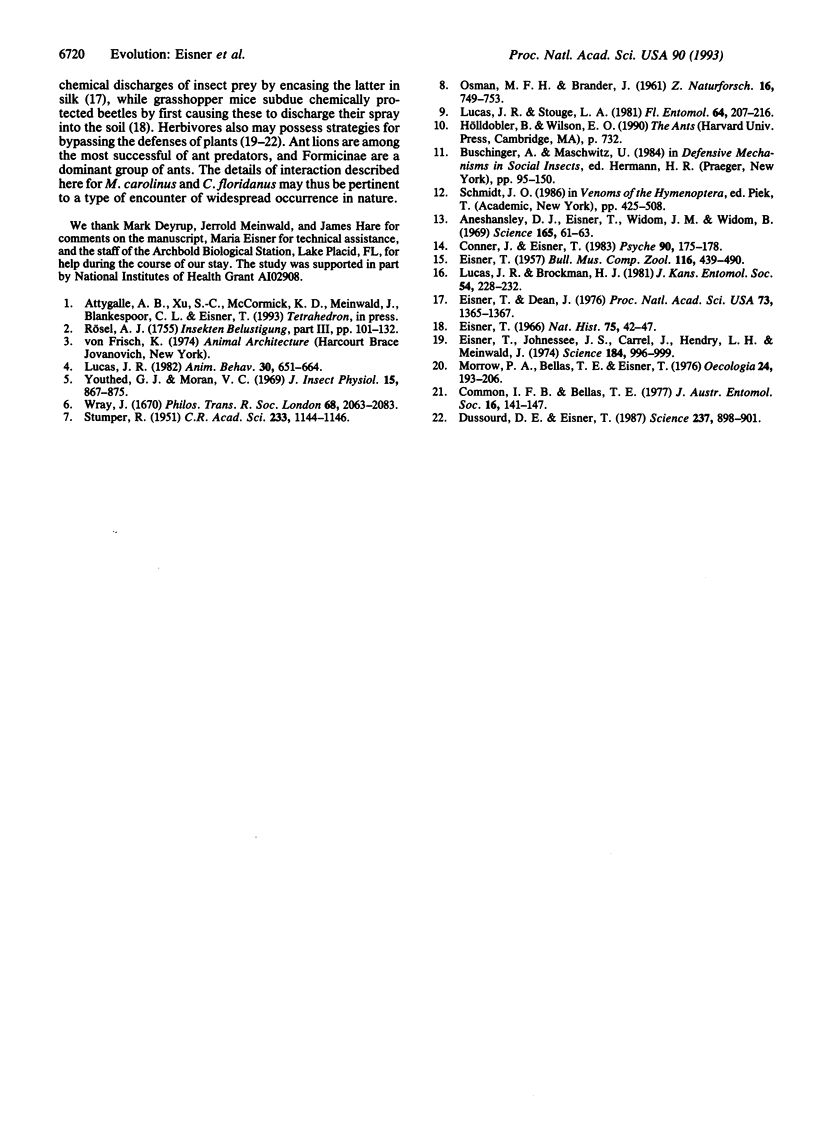
Images in this article
Selected References
These references are in PubMed. This may not be the complete list of references from this article.
- Aneshansley D. J., Eisner T., Widom J. M., Widom B. Biochemistry at 100{degrees}C: Explosive Secretory Discharge of Bombardier Beetles (Brachinus). Science. 1969 Jul 4;165(3888):61–63. doi: 10.1126/science.165.3888.61. [DOI] [PubMed] [Google Scholar]
- Dussourd D. E., Eisner T. Vein-cutting behavior: insect counterploy to the latex defense of plants. Science. 1987 Aug 21;237(4817):898–901. doi: 10.1126/science.3616620. [DOI] [PubMed] [Google Scholar]
- Eisner T., Dean J. Ploy and counterploy in predator-prey interactions: Orb-weaving spiders versus bombardier beetles. Proc Natl Acad Sci U S A. 1976 Apr;73(4):1365–1367. doi: 10.1073/pnas.73.4.1365. [DOI] [PMC free article] [PubMed] [Google Scholar]
- Eisner T., Johnessee J. S., Carrel J., Hendry L. B., Meinwald J. Defensive use by an insect of a plant resin. Science. 1974 May 31;184(4140):996–999. doi: 10.1126/science.184.4140.996. [DOI] [PubMed] [Google Scholar]
- STUMPER R. Sur la sécrétion d'acide formique par les fourmis. C R Hebd Seances Acad Sci. 1951 Nov 5;233(19):1144–1146. [PubMed] [Google Scholar]




